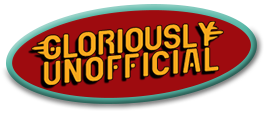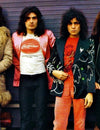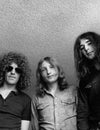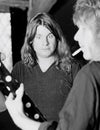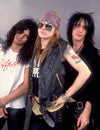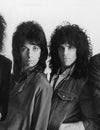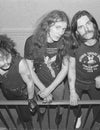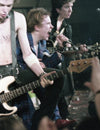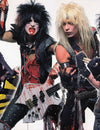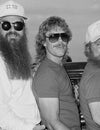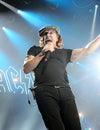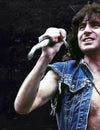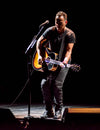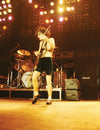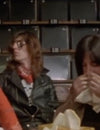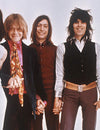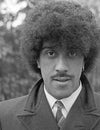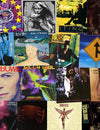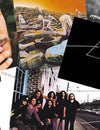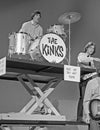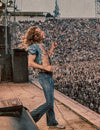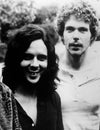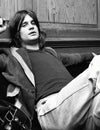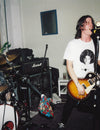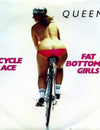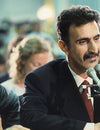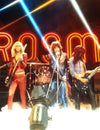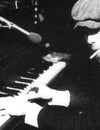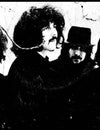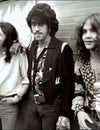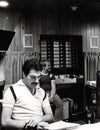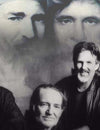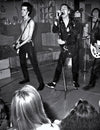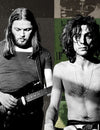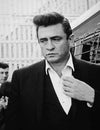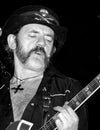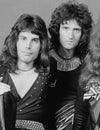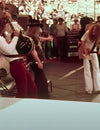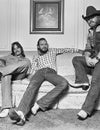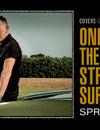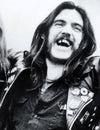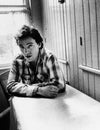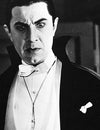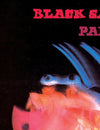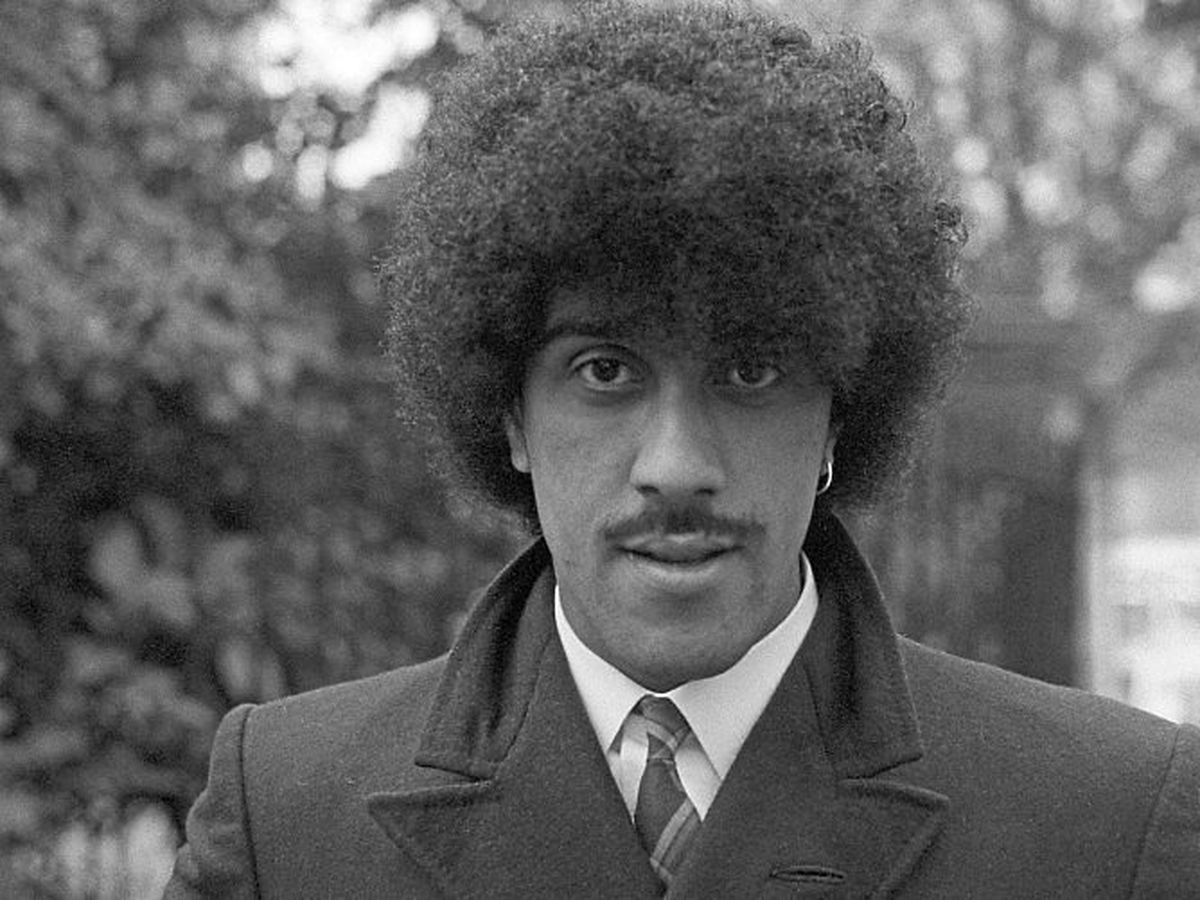
Thin Lizzy: The Career of Phil Lynott
Thin Lizzy’s Phil Lynott grew up in Dublin, England. He was sent to live there with his grandparents so he could escape the rampant racism he faced in Manchester, due to his being mixed race. Lynott was introduced to Motown music, and The Mamas & the Papas by his uncle, and they became a big influence. In 1965, at the age of fifteen, he joined a local cover band, the Black Eagles, and his musical journey began.
In 1968, after forming the band Skid Row, he teamed up with virtuoso guitarist Gary Moore, releasing two albums. Bandmates were concerned about Lynott’s ability to sing on-key and decided he needed to be replaced as lead vocalist. Phil used that as motivation to learn to play bass to keep his dreams of being a rockstar alive.
After learning to play just well enough, he and childhood friend and drummer, Brian Downey, formed a new band, Orphanage, with guitarist Joe Staunton and bassist Pat Quigley. They played original songs and covers of Bob Dylan, Free, and Jeff Beck. It was in late 1969 that he found his home as the bass-playing vocalist for his new band, Thin Lizzy.
A Fish Out Of Water
Guitarist Eric Bell was seen as the band’s leader early on. Lynott shied away from the spotlight, literally, allowing the focus to be on Bell during live shows. Even though he was their lead singer, bassist, and primary songwriter, he was very introverted on stage. It wasn’t until they were on tour in late 1972, opening for English rock band Slade, that it changed.
On opening night, Lynott and Slade's manager Chas Chandler got into a fight over Lynott’s lack of stage presence. Chandler threatened to kick Thin Lizzy off the tour unless he put on a more energized show. After that, Lynott came out of his shell and became the undisputed leader of the band’s live performances.
They became a must-see live show after that; Lynott's vocal skills, on-stage presence, songwriting skills, and the excitement of dual lead guitars left concertgoers satisfied. They had several hits to play by the mid-1970s: “Whiskey in the Jar,” “The Boys Are Back in Town,” “Jailbreak,” and “Waiting for an Alibi.”
The release of the “Jailbreak” album in 1976 made Thin Lizzy international superstars. “The Boys Are Back in Town” climbed into the Top 10 in the UK, number in Ireland, and was a huge North American hit as well. Joined by Rainbow, led by frontman Ronnie James Dio and Deep Purple Guitarist Ritchie Blackmore, the band embarked on a 1976 tour to promote their hit album. The tour had to be cut short after Lynott contracted hepatitis.
Phil had a prior relationship with Blackmore and Deep Purple’s drummer Ian Paice. In 1972, while recording their second album, “Shades of a Blue Orphanage,” Lynott considered leaving Thin Lizzy to create a new band with Blackmore and Paice, called Baby Face. Drummer Brian Downey recalls:
"Ritchie turned up in the studio one day to jam...I was asked to play drums to Phil and Ritchie jamming… Me and Eric looked at each other like, ‘Well, that's the end of the band then.’ It lasted a week, then Phil came back as if nothing had happened. He wanted to be the leader of his own band, not the singer in someone else's.”
Later that year, the band recorded an album of Deep Purple covers under the name Funky Junction. They were out of money and hoped the album would provide them with some quick cash. Benny White was brought in to sing on the album because Lynott felt his voice was not in the same style as Deep Purple vocalist Ian Gillan. White performed Deep Purple covers with his band, Elmer Fudd, so he was a better fit for the material.
Paying The Price
After the success of “Jailbreak,” the band enjoyed several world tours, and the success that came from multiple hit records: 1976’s “Johnny the Fox,” “Bad Reputation” in 1977, 1978’s “Live and Dangerous,” and “Black Rose: A Rock Legend” in 1979.
The band was changing members, with guitarist Brian Robertson being replaced temporarily by Gary Moore in 1976, and for good the following year, due to personal differences with Lynott.
Towards the end of the 1970s, Lynott looked to start a solo career. In 1980, he released the album “Solo in Soho.” It reached the top thirty on the UK charts and produced two hit singles: “Dear Miss Lonelyhearts" and “King's Call,” a tribute to Elvis Presley featuring Dire Straits guitarist Mark Knopfler. His second solo album, “The Philip Lynott Album,” released in 1982, failed to find the same success, but the song “Yellow Pearl” reached number 14 on the UK charts and was chosen to become the theme music to Top of the Pops.
Thin Lizzy disbanded in 1983, and in 1984, Lynott started another band, Grand Slam. The name Grand Slam was settled on after a slew of other band names were suggested, including Reactor Factor, Catastrophe, Hell Bent On Havoc, Slam Anthem, and Slam.
They played their first show in Ireland on 26 April 1984. The set was a mix of new songs, as well as songs from Lynott's solo albums, and Thin Lizzy songs. They toured the UK and Ireland in 1984. They received positive reviews from critics and fans.
The Darkness
Running out of money, Grand Slam split up at the end of 1984. Phil’s heroin addiction added to their demise. He was falling apart by that point. On Christmas day, 1985, he collapsed at his home. Found by his mother, she contacted his wife, Caroline, who informed her of the seriousness of the situation, as his mother was unaware of his heroin and alcohol addictions. They immediately took him to a drug clinic, and though he regained consciousness enough to speak to his mother, his condition worsened by the start of the new year, and he was put on a ventilator. He died of pneumonia and heart failure due to septicemia on 4 January 1986 at the age of 36.

